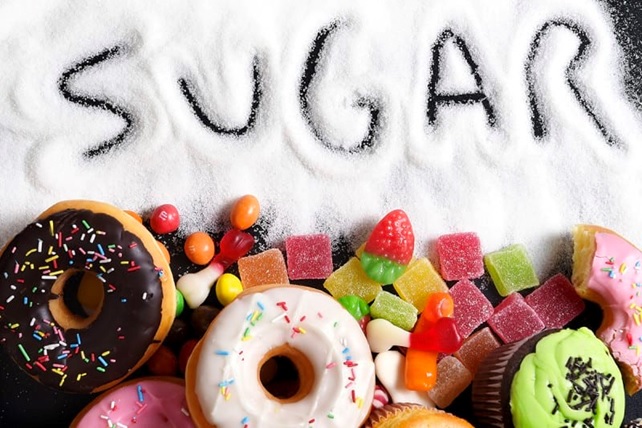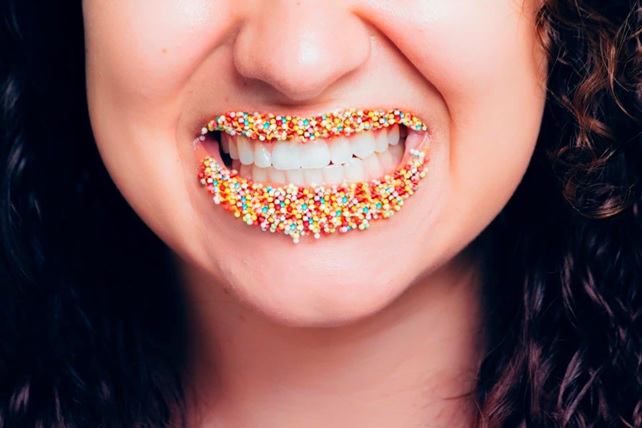
Some nutritionists will have you believe that sugar is the devil. This is not entirely true however the majority of us consume far more than we should. The ideal sugar intake for an adult is less than six teaspoons per day yet the average New Zealander consumes a whopping 37! This might explain our high rates of obesity, type 2 diabetes and preventable diseases. Most people aren’t aware of the sneaky ways sugar enters their diet. Even savoury foods like baked beans and BBQ sauce contain added sugars that our bodies don’t need. Becoming more aware of our intake can drastically benefit our skin, teeth, weight and health. If you’re tossing up whether you need to moderate your sugar consumption then read below to find out more.
What Does Sugar Do?
Sugar is a form of carbohydrate that is found naturally in fruits or can be refined and added to processed foods in order to make them tastier. Our body uses it as a quick source of energy however excess consumption has many negative effects. Unfortunately, our modern diets contain far too much of this saccharine substance and most of us would benefit from eating a bit less. When you consume sugar (glucose), your pancreas releases insulin to get it out of your bloodstream and into your cells. It does this because too much sugar in the blood (known as hyperglycaemia) will literally kill you. Consuming a boatload of sugar means your body has to work overtime to keep your blood glucose levels within a healthy range. Extra sugar that doesn’t get used immediately as fuel for exercise can get stored in our fat cells. This can lead to weight gain and put you at higher risk of preventable illnesses and cardiovascular disease. We aren’t saying that sugar should be avoided like the plague, but overdoing it on a regular basis will wreak havoc on your long term health.

Protect Your Pearly Whites
Having a sweet tooth isn’t just damaging to your insides. It can also harm your oral health. From a young age, we are told by our parents that lollies are bad for our teeth but why exactly is this? When you eat something sugary, it causes the bacteria in your mouth to produce acid. If this acid does not get removed or cleaned out, it can eat away at your enamel and lead to decay. When the surface of our teeth gets eaten up by acid, cavities occur and you will need fillings. Maintaining your million dollar smile will not be cheap. You can mitigate this damage by practising good dental hygiene but the WHO recommend limiting the percentage of calories you get from added sugars to less than 10%. Considering the fact that people notice your teeth before other facial features, it makes sense to protect them as much as you can. Minimising your sugary food and beverage intake will save you money at the dentist and preserve the health of your pearly whites.
Cut The Extra Kilos
Sugar is not inherently fattening but cutting down your intake can result in weight loss. Foods high in sugar can also be high in calories and not particularly satiating. Sweet snacks are commonly referred to as ‘empty calories’ because they contain negligible nutritional benefits. If the majority of your calories are coming from processed food, it is unlikely you’ll feel full which may lead to overeating. For example, one can of Coca Cola contains 139 calories. Guzzling a few of these every day can easily throw you into a calorie surplus. This is why many people lose fat when they cut out sugar from their diet. It is not because sugar causes weight gain. Rather it is because eliminating fizzy drinks, desserts and lollies drastically reduces your total calorie intake. If you are wanting to shed a bit of extra body fat then swapping out your sugary snacks could be a great place to start.

Better Looking Skin
When the pimps in the crib, drop it like it’s hot. When the pimps are on your face, drop your sugar by a lot. Studies show that diet affects the appearance of your skin. Have you ever broken out after indulging in too many sweet treats? Surveys show that those suffering with acne tend to consume more refined carbohydrates than the average joe. It is not totally clear whether this is correlation or causation. Some theorise that the effect of sugar on hormones can lead to acne. Others think high levels of insulin will increase the production of pore-clogging oils. Regardless of whether high sugar intake is the direct cause of acne or not, it is better to be safe than sorry. Keeping your consumption within a healthy range should mitigate the chances of you turning into a Clearasil before shot. What you look like on the outside can be a reflection of what is happening on the inside. Ensure the majority of your diet comes from single ingredient whole foods and your skin will be better for it.

Stable Blood Sugar & Mood
Does your mood swing up and down like a see-saw? Inconsistent blood sugar levels might be the reason why. If your blood sugar gets too low (hypoglycaemia), you may become aggressive, irritable or anxious. Diabetics know this especially well. When in a hypoglycaemic state, your personality changes immensely and you may act without thinking. In fact, people have gotten off murder charges by arguing they acted automatically due to low blood sugar. As the Snickers advertisement says, “you’re not you when you’re hungry.” Perhaps your inconsistent mood could be a sign your diet is too high in refined sugars as opposed to a personality flaw. Letting your blood sugar drop too low and then quickly spiking it again with a chocolate bar means you’re going from one extreme to another. The human body prefers to stay at equilibrium with your glucose levels not too high or too low. Test it out for yourself by swapping your regular sugary foods, to less processed whole foods. If your mood remains stable throughout the day then it may be a sign you’re better off without all the sugary junk.

Pregnancy
Do you have a bun in the oven? The foods a mother chooses to consume affects the child in a plethora of ways. The recommended sugar intake for pregnant women is less than 30g per day (essentially seven sugar cubes). Research suggests that high sugar consumption can increase the likelihood of your child having asthma and allergies. Other studies have found that mothers who drink sugar sweetened beverages tend to have kids with below average brain function. Most pregnant ladies probably aren’t considering this when they satisfy their intense sweet cravings. Keeping your sugar consumption low when pregnant is important for minimising the risk of gestational diabetes and ensuring the baby is gets all the vital nutrients they need. If improving your health isn’t enough motivation to cut out the sugary drinks and snacks, try doing it for the sake of the baby.

Conclusion
A spoonful of sugar might make the medicine go down but it can take your health markers down with it. Consuming too much of it may give you spotty skin, tooth decay and unwanted body fat. The best way to reduce your intake is to read nutrition labels and eat homemade meals that you’ve personally prepared. Processed foods might be convenient but relying on them daily is to your detriment. Always check the back of the products you buy and do your best to make lower sugar swaps when possible. If you want to enjoy your sweet treats without the sugar overload then NZProtein have got you sorted with chocolate, pancakes and many more healthy treats.
